Anyone who has lived in New York City before knows that apartment space comes at a premium.
For decades, housing costs have been continually climbing without any signs of slowing down.
Even a tiny shoebox apartment can run into the thousands of dollars per month.
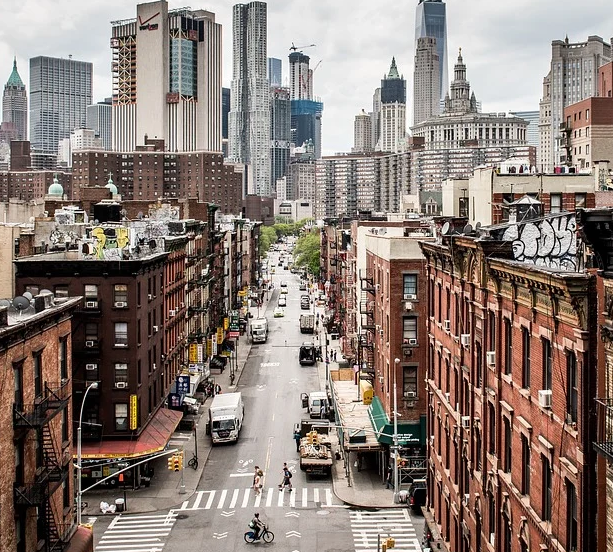

It’s something that young entrepreneurs like Graham Hill have experienced first hand.
He is no novice when it comes to tiny living.
Over the past several years, he has lived in tents, tiny trailers, and even on a boat.
However, he’s now set his sites on transforming New York apartment buildings.


After inheriting a rundown unit in the Soho neighborhood, Hill started an online contest inviting architects from all over the world to redesign the 420-square-foot space.
“The new equation I think is less stuff and less space equal smaller footprint, more money, and more happiness,” explained Hill.
The theme was of the contest was doing more with less.
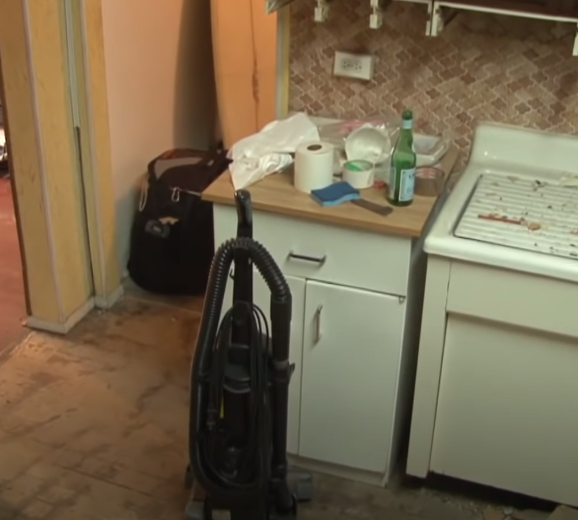

Hill envisioned an apartment that was both efficient, comfortable, and affordable.
It was all about how much they could realistically pack into the tiny apartment without making it feel cramped.
Over 300 people sent in their designs, but ultimately, it was two architects from Romania that had the winning plan.
The end result was nothing short of spectacular.
They took 420 square feet of space and transformed it into 1100 square feet worth of functionality. In other words, they almost tripled the usable surface area in the unit.
The first thing they decided to do was tear out all of the walls.
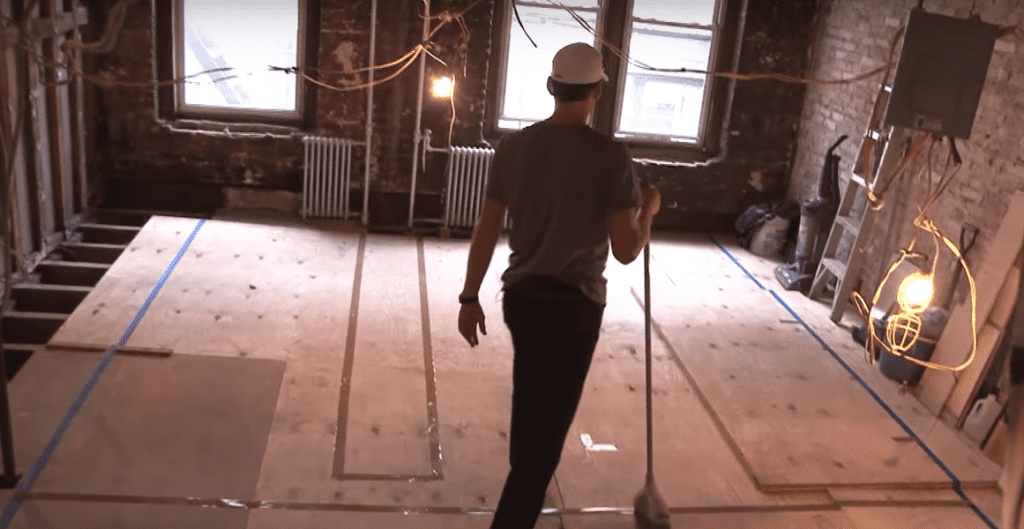

The apartment was quite messy to start and had been lived in for 40 years by the same woman.
It was in serious need of some renovations. Removing the walls really opened up the space, and already, it began to feel a little bit bigger.
Then they added the furniture in.
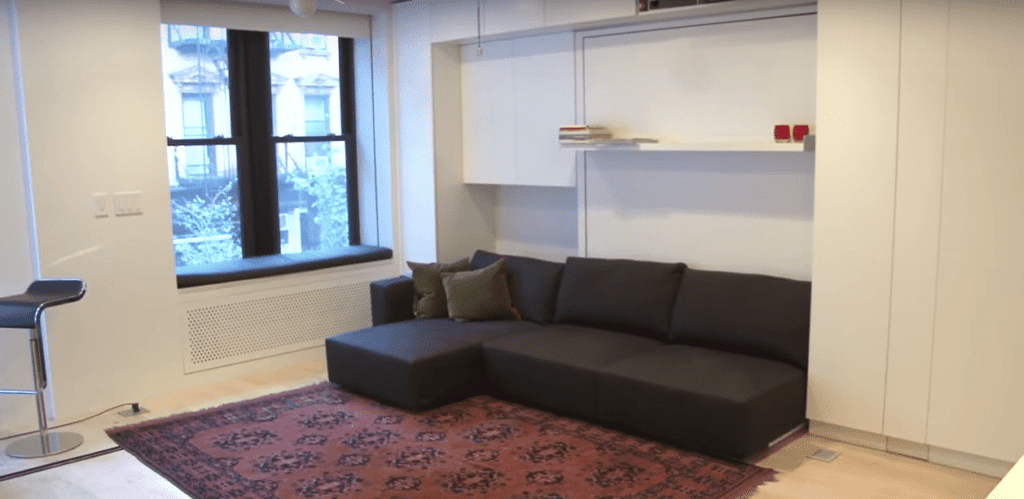

At first glance, it appears a though it is just a big wide open room with a sofa and a carpet.
However, pull down the shelves behind the sofa and it instantly becomes the master bedroom of the apartment.
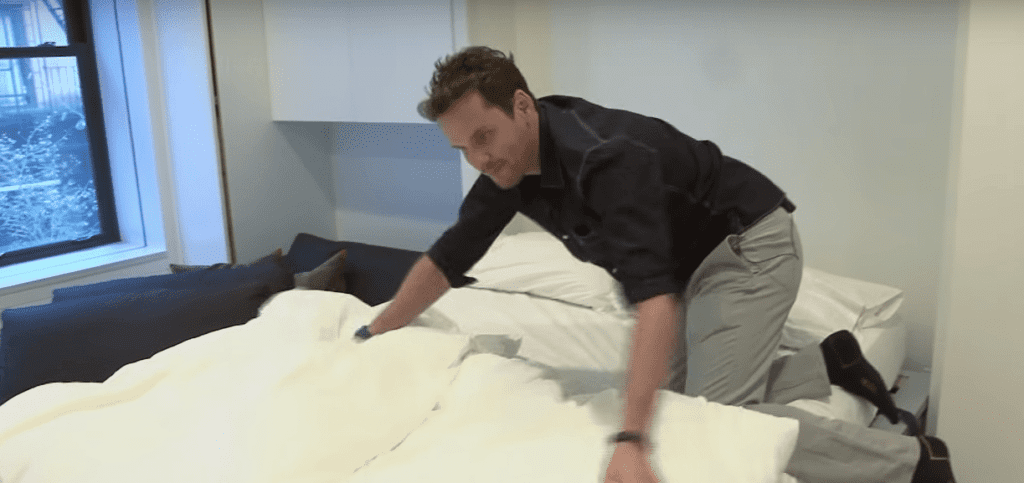

On the other side of the room are the wardrobe and television.
As you might expect, these areas transform as well.
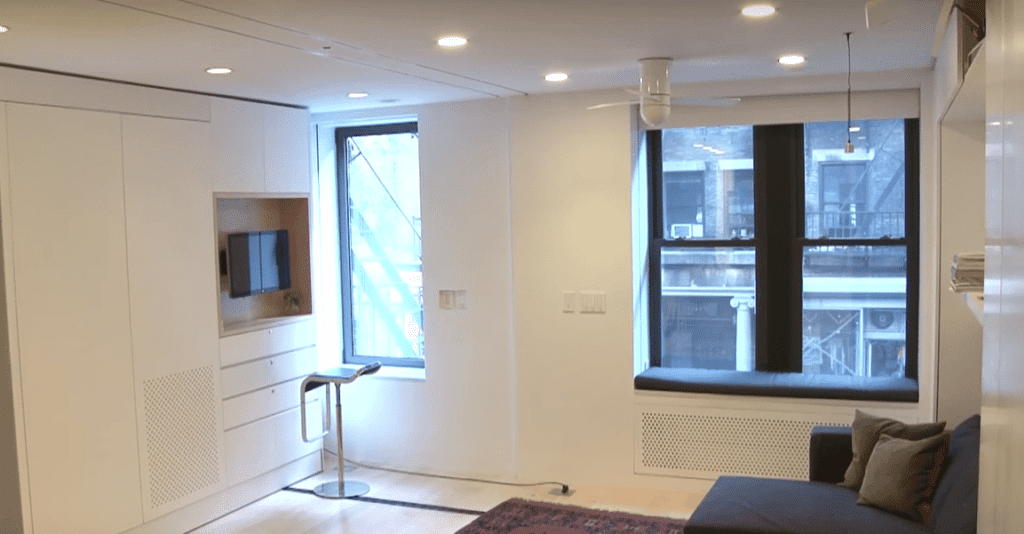

The drawer pulls out and doubles as a desk, converting the corner into a miniature office.
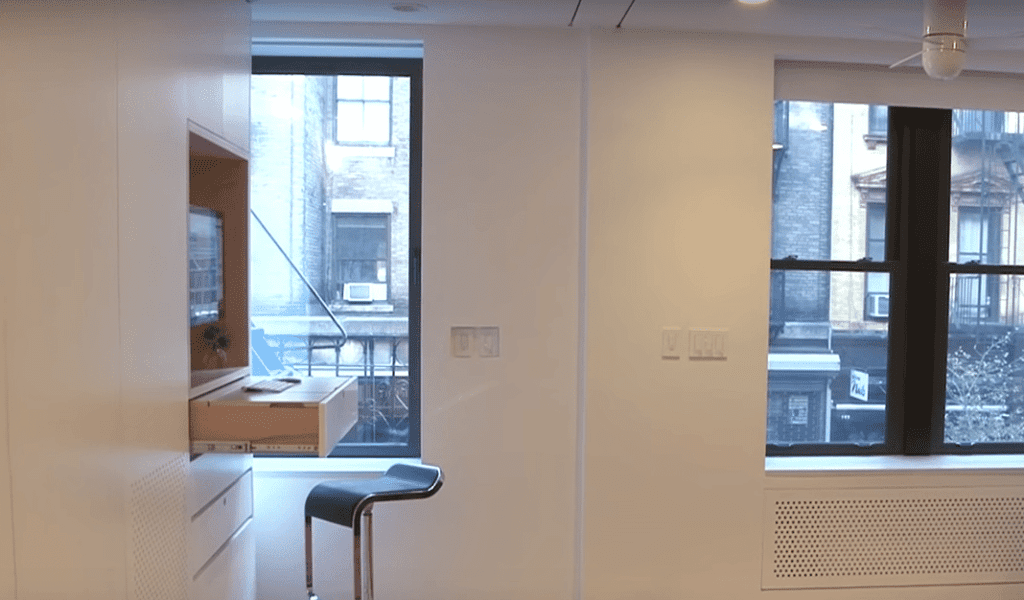

The kitchen comes complete with a modular dining table that folds out too.
When it is fully extended, it creates enough space for ten people to sit down and enjoy a meal.
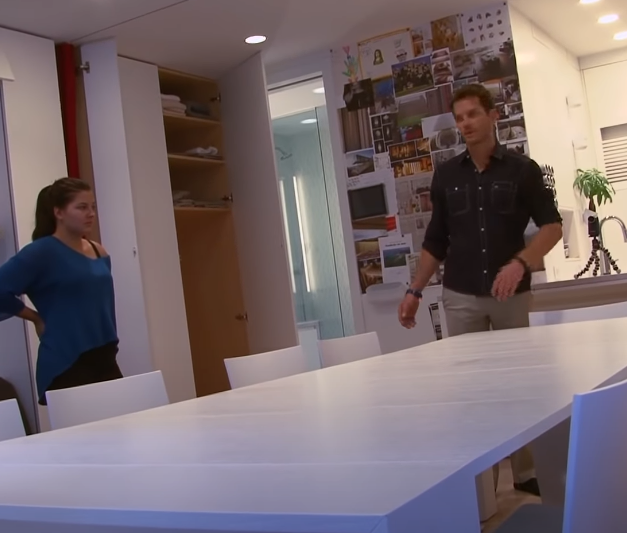

Instead of a stove, the apartment has a set of electric hot plates for cooking.
For cleanup, there is a two-gallon dishwashing machine that blends seamlessly into the countertops.
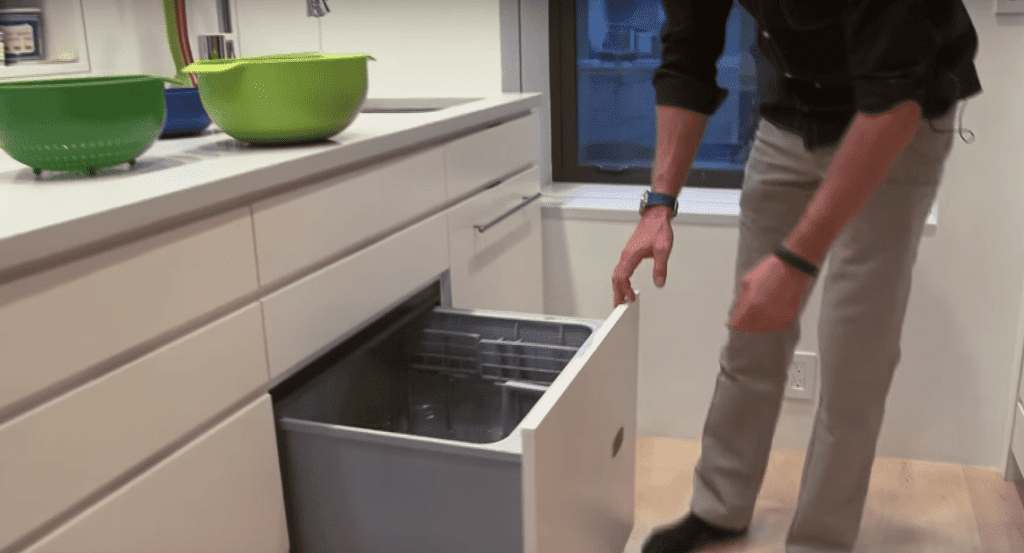

It’s fascinating how every space seems to have additional features beyond what you would typically expect.
For example, the bathroom has a fold-out shelf that converts it into a tiny phone booth.
If you need to make a call without disturbing someone else sleeping in the room, it’s the perfect spot.
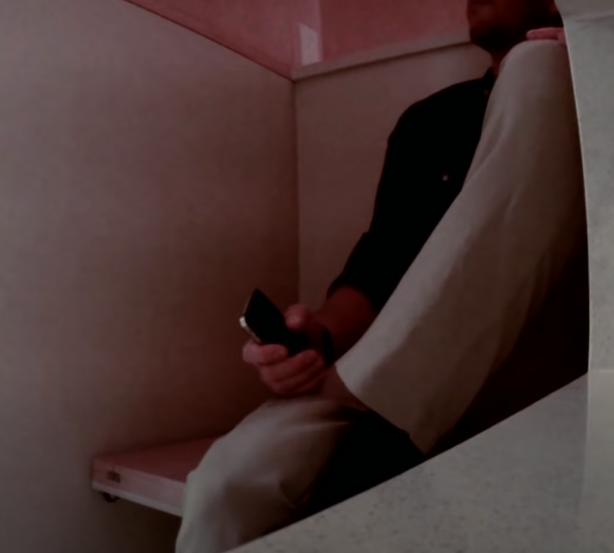

The most surprising part of the apartment by far though is the extra bedroom.
A divider can be pulled out to separate the room into two spaces.
Then a bunkbed pulls out of the wall creating a sleeping space for multiple more people.


Technically, it is a studio apartment. However, between the two bedrooms, living room, kitchen, office, and bathroom, we count at least six different distinct spaces.
It certainly doesn’t feel like 420 square feet anymore, that’s for sure!
It just goes to show how important prior planning is. With the right floor plan, furniture choices, and a little bit of creativity, the sky is the limit.
While many people think that they need thousands of square feet of space to survive in the city, Hall proves that with some solid design skills, you can easily live quite well with just a couple of hundred.















